-
What We Do
- WHERE WE WORK
-
About Us
 Welcome Message from Carol Jenkins
Welcome Message from Carol JenkinsFor more than 90 years, World Learning has equipped individuals and institutions to address the world’s most pressing problems. We believe that, working together with our partners, we can change this world for the better.
On my travels, I’ve had the opportunity to meet with many of those who have joined us in this mission. In Baghdad, we’ve trained more than 2,300 Iraqi youth who are already giving back at home. In London, our partners in the TAAP Initiative strongly believe that we are all responsible to practice inclusion. And in Vermont, our Experiment in International Living and School for International Training participants prove every day that they have the tools and the determination to change the world.
Please join us in our pursuit of a more peaceful and just world.
- Get Involved
Media Center > Story
How World Learning’s Core Values Shape and Inspire Our International Education Programs
November 18, 2019
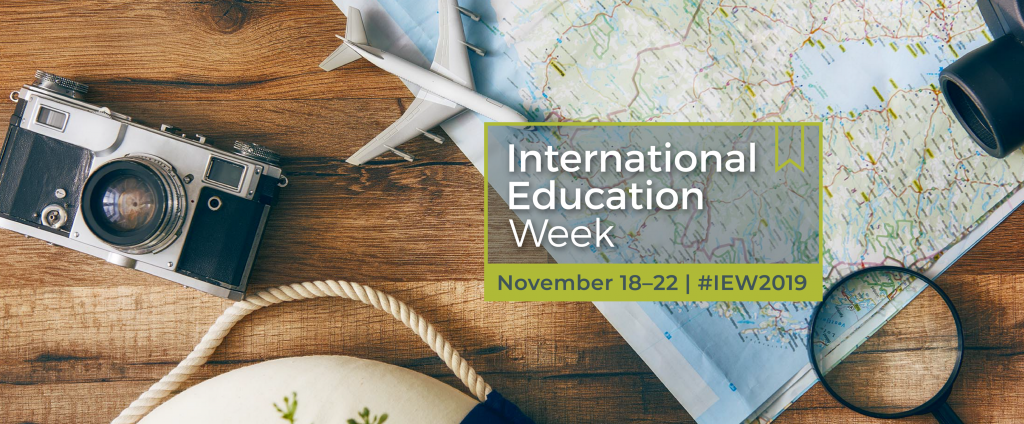
World Learning has seen the difference that learning and living abroad can make on a person’s life. For more than 86 years, we have been making it possible for future leaders everywhere to experience other countries and cultures through international exchange programs for youth, undergraduate and graduate students, and professionals.
These exchanges are transformative. Through the power of exchange, our participants cultivate leadership skills, develop tolerance, empathy, and respect, and gain a deeper understanding of U.S. values and culture. Through it all, our core values — Community, Intercultural Understanding, Social Inclusion & Justice, and Sustainability — guide the way.
As International Education Week kicks off, World Learning would like not only to celebrate the many benefits of international education but reflect on how our values inspire and strengthen our work. We’ve asked several members of our staff to share why they think World Learning’s core values make a difference in designing and carrying out international exchange programs. Read on to learn what they had to say.
Ann Driscoll
Senior Program Officer
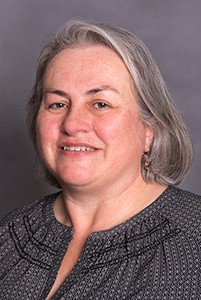
I’m one of the World Learning team members who works with the International Visitor Leadership Program (IVLP). The IVLP is a flagship U.S. Department of State professional exchange that brings rising leaders from various fields to the United States to meet their U.S. counterparts, explore their profession, and experience American culture and society.
A high point for all of us who work on the IVLP is the opening session that kicks off each project. That’s where we meet the participants we’ve been reading about, and designing an exchange experience for, for weeks. They’re always amazing people, doing amazing things. Participants I’ve worked with in just the past year include a local official and nonprofit leader working on refugee resettlement and inclusion in Turkey; activists speaking up for women’s, LGBTQ+, and indigenous people’s rights in African countries; a Burmese artist and entrepreneur whose organic weaving and dye enterprise creates sustainable employment in rural areas; and a Haitian journalist who created an SMS-based news service when normal communication had been cut off by the 2010 earthquake. One of the most important resources we draw on in designing IVLP programs is the personal qualities of participants like these — their intelligence, curiosity, commitment to social justice, and drive to understand and address the problems and needs they see in their home countries.
At project openings, I tell my groups about World Learning’s history, how it grew from a small student exchange into an international organization carrying out educational, exchange, training, and development programs worldwide. I explain that a value that runs throughout our history and our programs is a belief in the ability of individuals to use the information, ideas, and connections they gain through international and intercultural exchanges to improve the world. That value makes us an ideal implementing partner for the IVLP, which likewise runs on the idea that empowered people make a difference. I always feel privileged and proud to be part of this work.
Jennifer Chen
Program Specialist
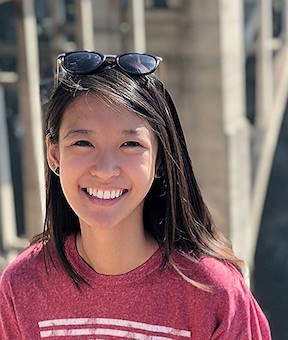
Each year, World Learning trains over 1,000 young people to become civic leaders in their communities, yet those opportunities have traditionally been restricted to those with mobility — the ability to traverse national borders. Recognizing the need to include those with limited mobility, such as youth living in conflict zones and rural areas, and girls whose parents do not allow them to travel abroad, in 2016, World Learning designed our first virtual exchange program, The Experiment Digital (formerly known as the Digital Young Leaders Exchange Program).
In its pilot year, The Experiment Digital brought together 100 young people from Iraq and the U.S. through an online platform. It had a meaningful effect. Anyone who was not enrolled in traditional schooling as a result of internal displacement could still practice English with peers from around the world; students who were uncomfortable speaking in front of a large audience could take time to think and then share their opinions on climate change through an online discussion; and those who could not afford a study abroad program could still discuss forms of leadership through a video conference call.
Since 2016, The Experiment Digital has grown tremendously: the number of participants we reached doubled between the first and second year, and is on target to reach 600 in summer 2020. Thanks to technology, we expanded the program to reach young people in Algeria and Yemen and wrote transcripts for all videos to support participants with low Internet bandwidths. We also incorporated inclusive language on our application to encourage those from all backgrounds to apply. Witnessing the impact of these design choices reaffirms my belief that digital programming is a viable and sustainable solution to ensuring all young people have opportunities for training — which is especially important now more than ever.
Benjamin Cohen
Senior Program Associate
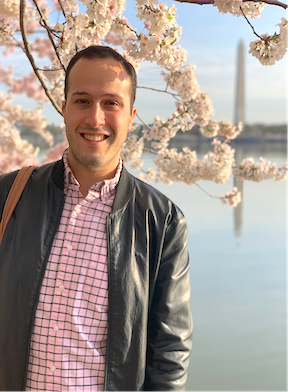
The Fulbright Specialist Program reinforces World Learning’s core values every day at home in the U.S. and in the over 150 participating countries. Funded by the U.S. Department of State, The Fulbright Specialist Program offers opportunities to U.S. academics and professionals to serve on short-term, project-based exchanges at host institutions around the world.
What makes the program unique and central to World Learning’s values is that it is structured to allow those institutions to set the agenda for each exchange. This ensures that Specialists contribute knowledge, skills, and resources to partners abroad in ways that maximize understanding of the local context and strengthen opportunities for future collaboration. This aligns well with World Learning’s value of intercultural understanding: A space is created for the Specialist and host to share and learn from one another in a setting that is deferential to both the culture of the host institution and the expertise the Specialist provides.
And while Specialist grants are short — the maximum a Specialist can serve at one time is six weeks — the collaboration born out of a host-driven plan often results in lasting connections that build transnational communities of professionals, scholars, problem-solvers, artists, agents of change, and the list goes on. This aspect of the Fulbright Specialist Program strengthens World Learning’s commitment to sustainability by laying the foundation for relationships that last.
Our program has numerous examples of how this has played out in the field. One Fulbright Specialist traveled to Bulgaria on a grant to establish the country’s first-ever legal incubator, providing greater access to legal resources for the country’s Roma community. The project led to a year-long Fulbright Scholar grant in Bulgaria with the goal of broadening implementation of the legal incubator. Not only does this project reinforce the value of the Specialist program generally but it also builds on several World Learning values, including Community and Social Inclusion and Justice.
Amaris Ifedi
Program Officer
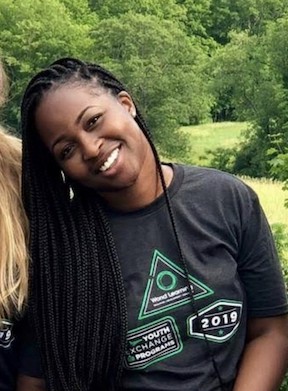
At World Learning, I work collaboratively with the Youth Ambassadors Program team to develop and deliver educational and cultural exchange programs for young people across the Caribbean and South America. We strive to integrate our core values throughout all phases of our work, from staff development to program implementation.
First and foremost, we focus on building our smaller community of staff and group leaders by ensuring the voices, experiences, and expertise of all members are recognized, valued, and included. Then, we work together to develop and implement exchanges that provide Youth Ambassadors with a similar opportunity to foster community and mutual understanding through cultural immersion and experiential learning.
We recognize that young people around the world are eager to travel abroad, but we are also committed to empowering Youth Ambassadors with the capacity to respect, care, and prioritize the needs of their home communities, too. During the international exchange, the Youth Ambassadors start with team building activities and a community-issues mapping workshop to learn more about themselves and their communities, respectively. Students stay with host families to help ground their experience by learning about life and people in rural and urban cities across the U.S. By the end of the program, each student develops an initiative to address a social issue in their local communities. The Youth Ambassadors return home with increased interest in building their communities — which they do with the sustained support of their connections made through World Learning and their fellow Youth Ambassadors across the Western Hemisphere.





